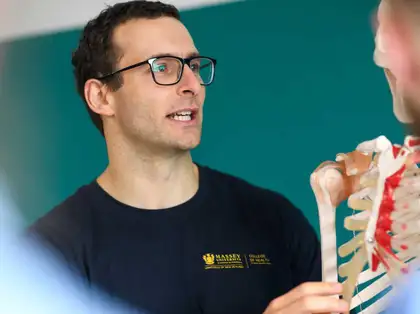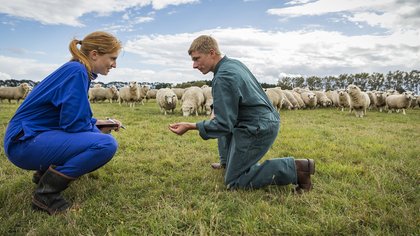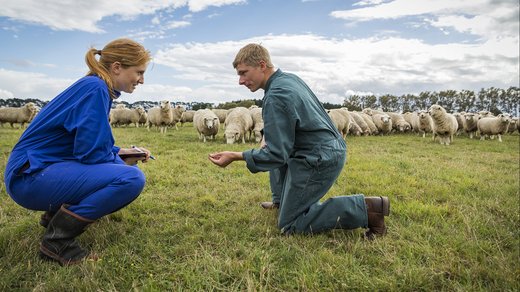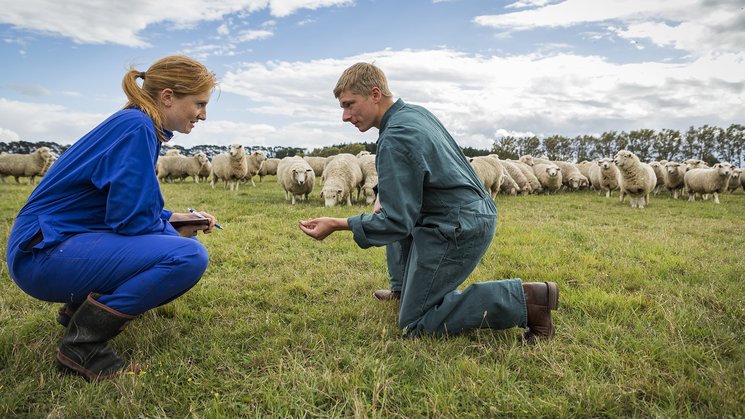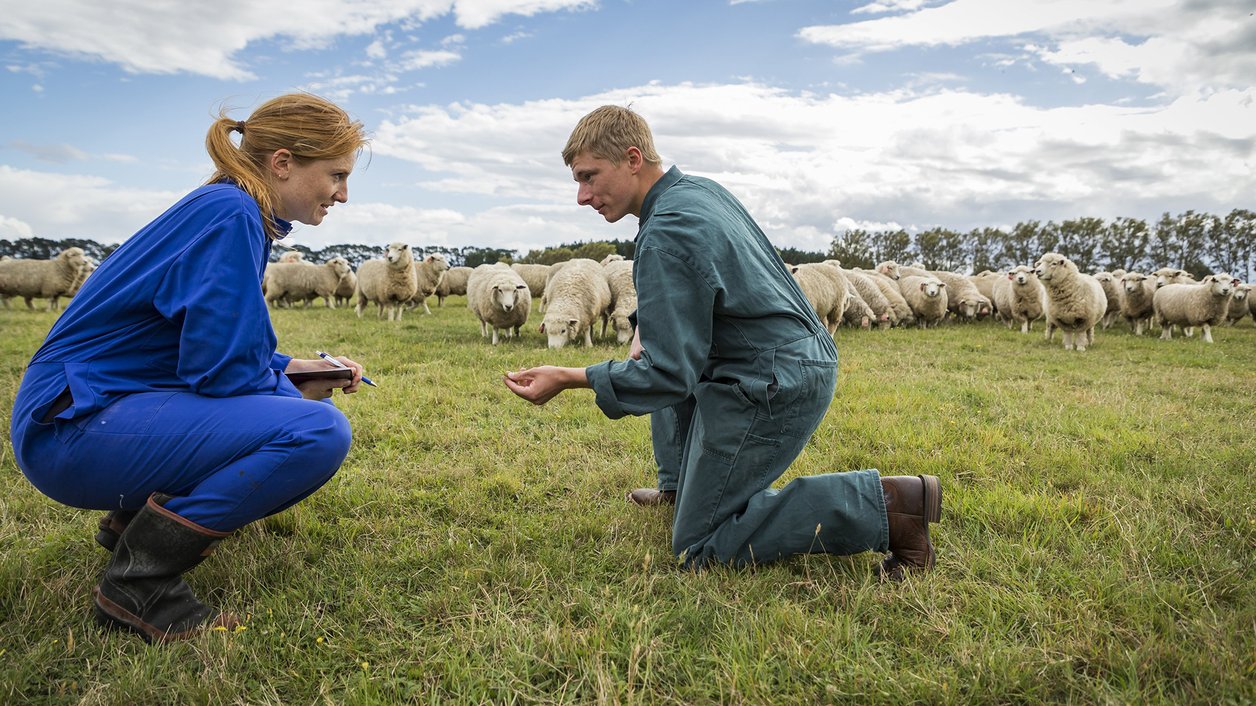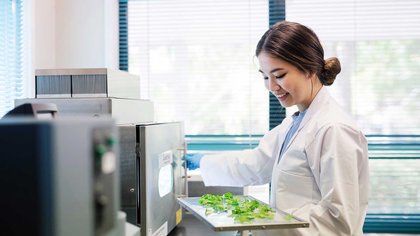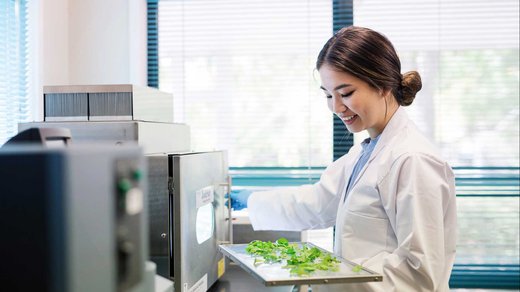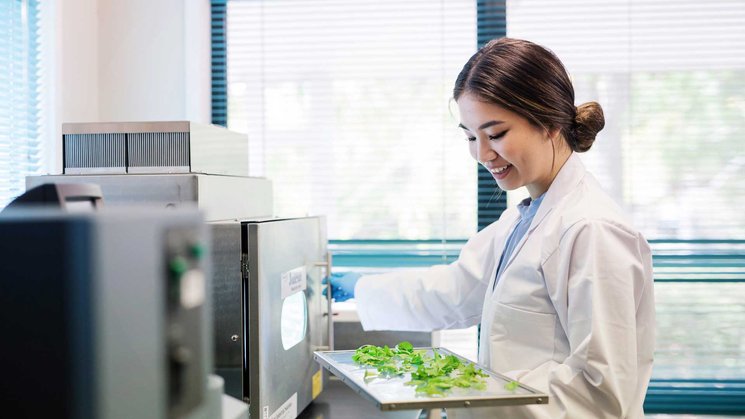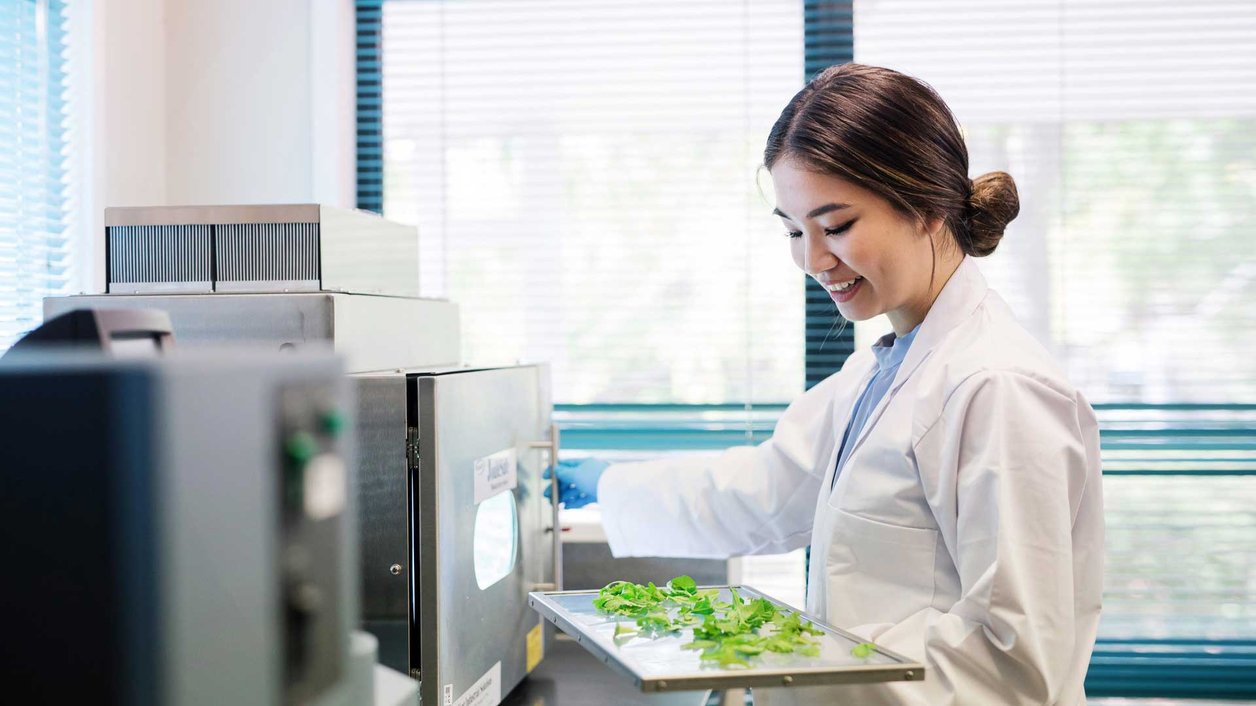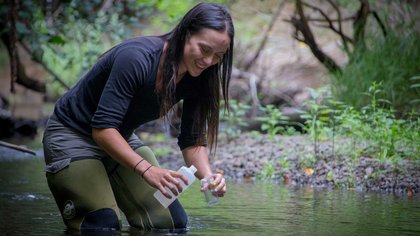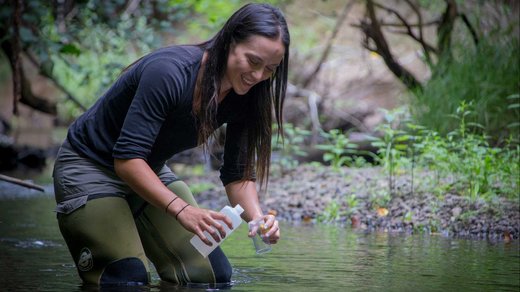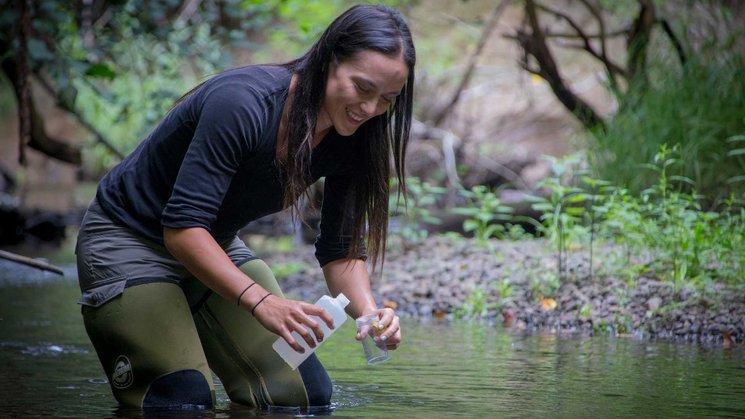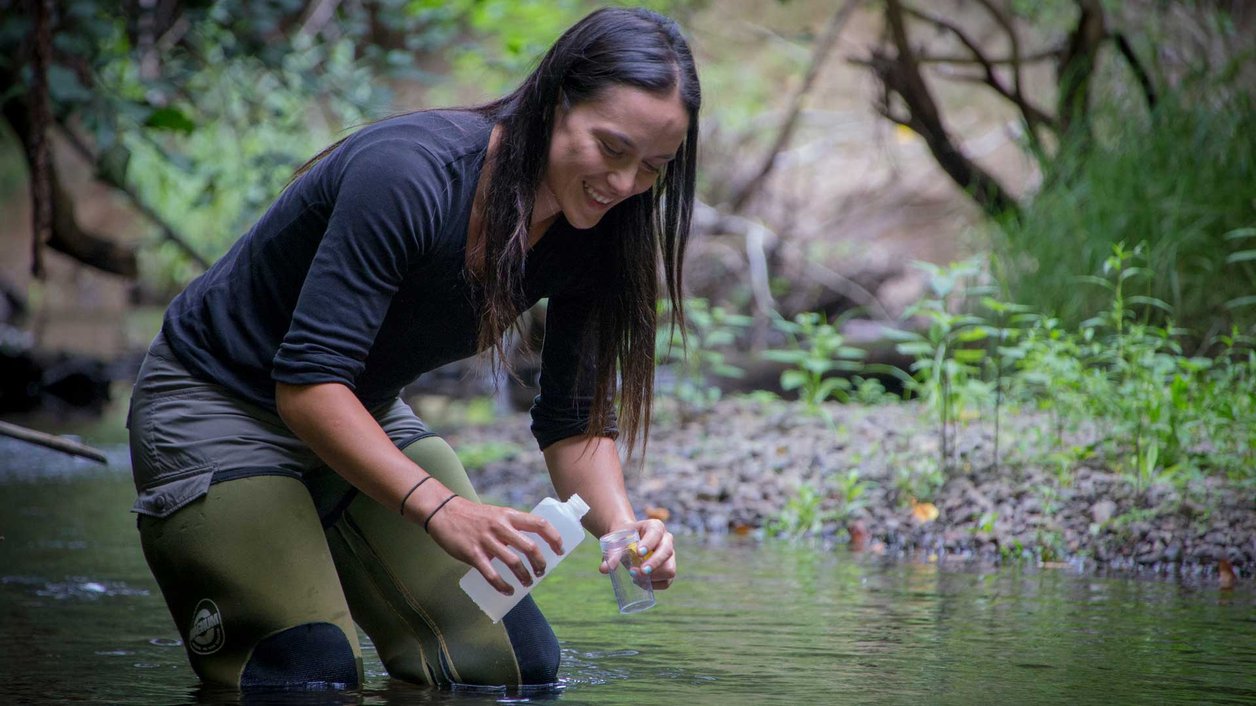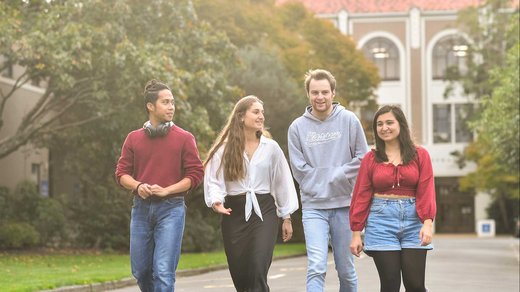The sky's the limit
Endless career options await Massey science grads, including biotechnology, conservation, genetics, medical advances, and more.
Learn by doing
Get hands-on experience in labs, field trips, and practical projects that focus on solving real-world problems.
Go broad or specialise
Massey's large range of science courses means you can specialise in your area of interest or mix and match across disciplines.
Overview
Human, animal and plant sciences are in our DNA. We've taught biological and natural sciences for many decades.
Learn from world-class lecturers and researchers. Explore and contribute to latest research. Master new skills with state-of-the-art equipment and laboratories. Gain hands-on experience during lab work and field trips.
Solve real-world problems during internships — examples include crown research institutes such as GNS Science and NIWA, agribusinesses, or health or sporting organisations. Graduate work-ready, with skills employers need.
Biological and natural sciences are a good fit if you:
- enjoy school subjects such as biology, chemistry, physics or health
- want to help tackle challenges facing our world, such as climate change, health inequalities, or devising new materials and medicines
- like analysing data, solving problems or testing new ideas.
Course examples
Health sciences
Courses within health may cover:
- exercise and sport science
- human nutrition
- immunity
- physiology (how bodies work)
- sleep science
- ways to improve health outcomes, including intervention, prevention and promotion.
Natural sciences
Courses within the sciences may cover:
- biochemistry and biotechnology
- cell biology and genetics
- chemistry, including chemical analysis and how to design new molecules
- geological processes and resources — including the impact of natural disasters and climate change
- microbes in our bodies, in plants or animals, or in the environment — including those which cause diseases
- nanoscience
- physics.
How to study biological and natural sciences
Discover what we offer if you’re interested in biological and natural sciences – whether you’re coming to university for the first time, changing direction or returning to advance your study or career.
Undergraduate study
Undergraduate study An undergraduate qualification is generally the first thing you’ll study at university. In some qualifications you can choose what subject you’d like to specialise in.
Bachelor's degrees
Environmental Health – Bachelor of Health Science
Protect people and communities from threats to their health from built and natural environments, with the Bachelor of Health Science (Environmental Health).
Human Nutrition – Bachelor of Health Science
Fuelling healthier futures - Massey’s Bachelor of Health Science (Human Nutrition) is grounded in nutrition and public health, giving you the skills to transform individual, community and population health outcomes.
Integrated Human Health – Bachelor of Health Science
Learn about the impact of biological and environmental factors on human health, and how you can make a difference.
Chemistry – Bachelor of Science
Gain sought-after scientific, analytic, and problem-solving skills with Massey's Bachelor of Science (Chemistry).
Earth Science – Bachelor of Science
When you join the Bachelor of Science (Earth Science) you’ll join an area that’s solving geotechnical and environmental problems.
Ecology and Conservation – Bachelor of Science
From molecules to forests, ecology is a broad discipline that teaches you how to make sense of the interactions between organisms and their environment.
Human Nutrition – Bachelor of Science
If you are passionate about food and nutrition and want to learn more about the science behind how diet affects health, then Massey’s Bachelor of Science (Human Nutrition) is for you.
Microbiology – Bachelor of Science
Join Massey’s unique Bachelor of Science (Microbiology) to explore and understand microbes in the environment, from the soil to the air, and in the human body.
Molecular Cell Biology – Bachelor of Science
Cells and the molecules that make them are the building blocks of all life. Join the molecular revolution in biology and develop sought after scientific skills in molecular cell biology.
Plant Science – Bachelor of Science
Join the Bachelor of Science (Plant Science) at Massey - the only university in New Zealand where you can study the full spectrum of plant science from molecular biology and evolution, through to agriculture and horticulture.
Sustainable Climate Systems – Bachelor of Science
How do we counteract the impacts of climate change? By collecting evidence, seeking new perspectives, challenging conclusions and using 'systems' thinking. This is science for the society you live in. Study the complex problems of our age.
Zoology – Bachelor of Science
Let your love of animals take you into a field that is in high demand throughout New Zealand. With Massey's Bachelor of Science (Zoology) you have the chance to learn everything there is to know about animals.
Undergraduate certificates
Certificate in Science and Technology – CertScTech
The Certificate in Science and Technology is a shorter study option at university level. It is used primarily as a ‘pathway’ to help you complete subjects you need to enter another qualification.
Graduate certificates
Graduate Certificate in Science and Technology – GCertScTech
Do you want to expand your knowledge or learn a new subject without completing a second bachelor’s degree? Massey’s Graduate Certificate in Science and Technology is a flexible postgraduate study option.
Undergraduate diplomas
Diploma in Science and Technology – DipScTech
Undertake a shorter, more flexible study option with the Diploma in Science and Technology at Massey.
Graduate diplomas
Graduate Diploma in Environmental Health – GradDipEH
If you’re interested in protecting people’s health and wellbeing at a local community level, the Graduate Diploma in Environmental Health is for you.
Graduate Diploma in Science and Technology – GDipScTech
The Graduate Diploma in Science and Technology gives you the opportunity to retrain in an area of science that interests you.
Postgraduate study
Postgraduate study Once you’ve graduated with a bachelor’s degree – or have equivalent experience – you’ll be ready to take on postgraduate study.
Master's degrees
Sport and Exercise – Master of Health Science
Elevate your career in sport and exercise with Massey’s Master of Health Science.
Biological Sciences – Master of Science
Develop advanced expertise in biology with Massey's Master of Science (Biological Sciences).
Chemistry – Master of Science
Join a group of like-minded scientists, passionate about scientific discovery and the positive impact chemistry can have on the world.
Earth Science – Master of Science
Gain skills in dealing with often-complex Earth systems, evaluate current research, and apply your knowledge to real-world issues while working in some really amazing places around the world.
Ecology and Conservation – Master of Science
Explore the connections between living things and their environment - learn how to address conservation management problems that are relevant to the world today.
Nutrition and Dietetics – Master of Science
Study Massey’s Master of Science in Nutrition and Dietetics to learn about the intricacies of and relationships between food, nutrients, health, and disease, and how they can be manipulated to improve health and wellbeing.
Plant Breeding – Master of Science
Join an industry that is in demand in New Zealand and overseas. Gain real-world experience and advanced knowledge in plant breeding with Massey’s Master of Science (Plant Breeding).
Zoology – Master of Science
Take advantage of our zoology expertise and join New Zealand's most knowledgeable university for zoology-related topics.
Postgraduate diplomas
Animal Science – Postgraduate Diploma in Science and Technology
Join a world-leading agricultural university. Massey’s Postgraduate Diploma in Science (Animal Science) is a stepping stone to a research-based degree.
Biological Sciences – Postgraduate Diploma in Science and Technology
The Postgraduate Diploma in Science and Technology (Biological Sciences) is a stepping stone to a research-based degree. Take advantage of Massey's world-class facilities available to you.
Earth Science – Postgraduate Diploma in Science and Technology
A Postgraduate Diploma in Science and Technology (Earth Science) is a stepping stone to a research-based degree.
Ecology and Conservation – Postgraduate Diploma in Science and Technology
Explore the connections between living things and their environment, have a positive impact on our environment and help address conservation issues that are relevant to the world today.
Plant Breeding – Postgraduate Diploma in Science and Technology
Join an Industry that is in demand. Many students of Massey's Postgraduate Diploma in Science (Plant Breeding) have jobs before they graduate.
Zoology – Postgraduate Diploma in Science and Technology
The Postgraduate Diploma in Science and Technology (Zoology) is a stepping stone to a research-based degree. Take advantage of Massey’s experts who can help you dig deeper into your area of interest.
PhD and other doctoral degrees
Doctor of Philosophy – PhD
A prestigious research qualification that demonstrates your ability to carry out independent and original research in your chosen field.
Relevant research areas at Massey
Discover research expertise, projects and initiatives relating to biological and natural sciences at Massey.
What our students say
“Massey provided me with a very strong foundation in genetics and introductory research skills that allowed me to hit the ground running.”

Ngāti Porou, Ngāti Kahu
“I would recommend studying at Massey University due to the high level of support, guidance and valuable expertise from staff from both the academic and practical placement setting. I am now in a career where I feel I am making a true difference to the nutrition and health of the community.”

“Studying extramurally at Massey University enabled me to pace my study within other commitments and gave me access to experienced supervisors. I could largely independently pace my work providing I stayed within our set timelines. The knowledge I gained has contributed largely to my governance and director roles.”

Our facilities
You'll have access to a wide range of first-class facilities when you study with us.
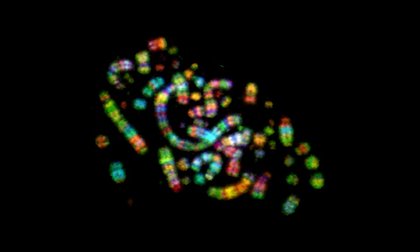
Massey laboratories
State-of-the-art laboratories and equipment include:
- nuclear magnetic resonance lab
- optical lab with optical tweezers, light scattering, and spectrometers
- PC2-certified lab for molecular biology, protein expression and purification
- solar cell construction and testing facilities
- X-ray diffraction lab.
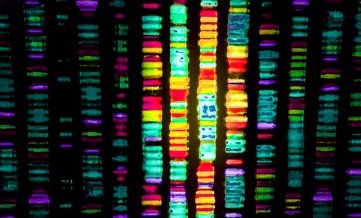
Massey Genome Service
Our lab provides sequencing services to New Zealand researchers and students, including:
- analysis of genomic DNA
- genotyping
- RNA and ABI sequencing.
Location: Manawatū campus
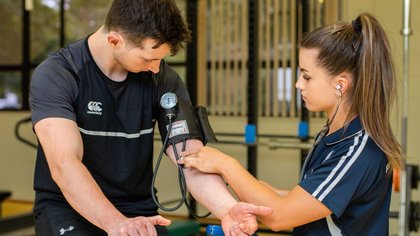
Human Performance Laboratory
This laboratory evaluates performance for a wide range of sports and occupational activities, with state-of-the-art research and testing equipment.
Location: Manawatū (Palmerston North) campus
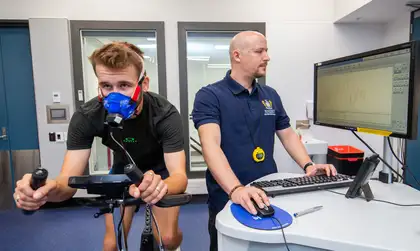
Sport and Exercise Science Research Laboratory
This laboratory offers a physiological and biomechanical analysis for many sports and occupational activities. Laboratory staff have experience with a wide range of sports, athletes and occupations.
Location: Auckland campus
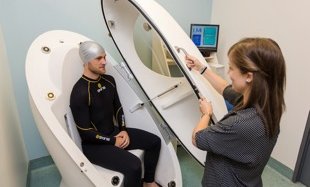
BodPod and other specialist equipment
The BodPod is an advanced piece of equipment used to accurately and easily measure your body composition. It uses an air-displacement method to measure all the fat in your body, which sets it apart from less direct techniques of body composition measurement.
Location: Manawatū (Palmerston North) campus
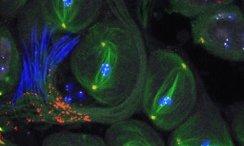
Manawatū Microscopy and Imaging Centre
The centre is available for use by organisations such as researchers, Crown Research Institutes, other teaching institutions, hospitals and commercial clients.
We have a team of specialists and offer:
- transmitted light and fluorescence microscopy
- electron microscopy
- image analysis.
Jobs in biological and natural sciences
Careers in biological and natural sciences can be in many different sectors. Examples include biotechnology, conservation, the energy sector, genomics, healthcare, medical research, and more.
Some of our graduates work in research and development at crown research institutes, multinational companies or specialist laboratories. There are also opportunities in management and in scientific start-ups.
Job prospects are good in New Zealand and overseas, with high demand for skilled workers.
Careers include:
- biotechnologists or biochemists, who may develop new animal, plant or molecular products such as drugs or vaccines
- chemists, also called chemical scientists, who study the make-up and behaviour of chemicals
- ecologists
- environmental health officers
- microbiologists, who study the bacteria, fungi or viruses that cause infections or diseases
- molecular biologists, who study genes and molecules for medicine, agriculture or ecology
- nutritionists or health promoters, who work in community, health or sports organisations
- researchers, who may specialise in areas such as bioscience, forensic, manufacturing or medicines
- teachers or lecturers.
Annual salary ranges for jobs
- Biochemist – $72,000 to $125,000
- Chemist (chemical scientist) – $64,000 to $105,000
- Microbiologist – $63,000 to $104,000
Salary ranges disclaimer
Indicative pay rates are:
- in New Zealand dollars
- based on Tahatū Career Navigator website data.
Which biological or natural sciences qualification?
Examples of where our qualifications may take you.
| Qualification | Jobs |
|---|---|
| Bachelor of Health Science (Environmental Health) | Environmental health officer |
|
Bachelor of Science (Chemistry) Bachelor of Science (Molecular Cell Biology) Master of Science (Chemistry) |
Biochemist |
| Bachelor of Science (Human Nutrition) | Nutritionist or health promoter |
| Bachelor of Science (Microbiology) | Microbiologist |
| Bachelor of Science (Molecular Cell Biology) | Biotechnologist (biotech researcher) or molecular biologist |
| Master of Science (Chemistry) | Chemical scientist (chemist) |
| Master's degree in your chosen specialisation | Researcher in a specialist laboratory, such as at a crown research institute, manufacturer or university |
Accreditations and rankings
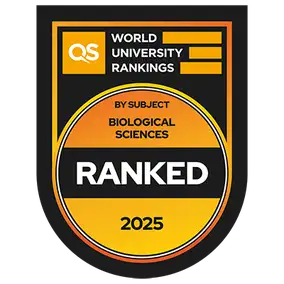
QS Ranking - Biological Sciences
Massey University is ranked by QS (Quacquarelli Symonds) as one of the top 500 universities in the world for biological sciences.
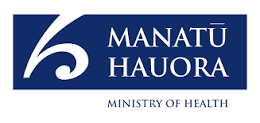
Environmental Health Officers Qualifications Regulations 1993
Our environmental health qualifications are recognised by the Ministry of Health as meeting qualification requirements for environmental health officers. Our qualifications are also recognised as suitable background for employment of Environmental Health Officers in Australia.
Get an information guide
Download our guides to find out more about studying biological and natural sciences at Massey.
